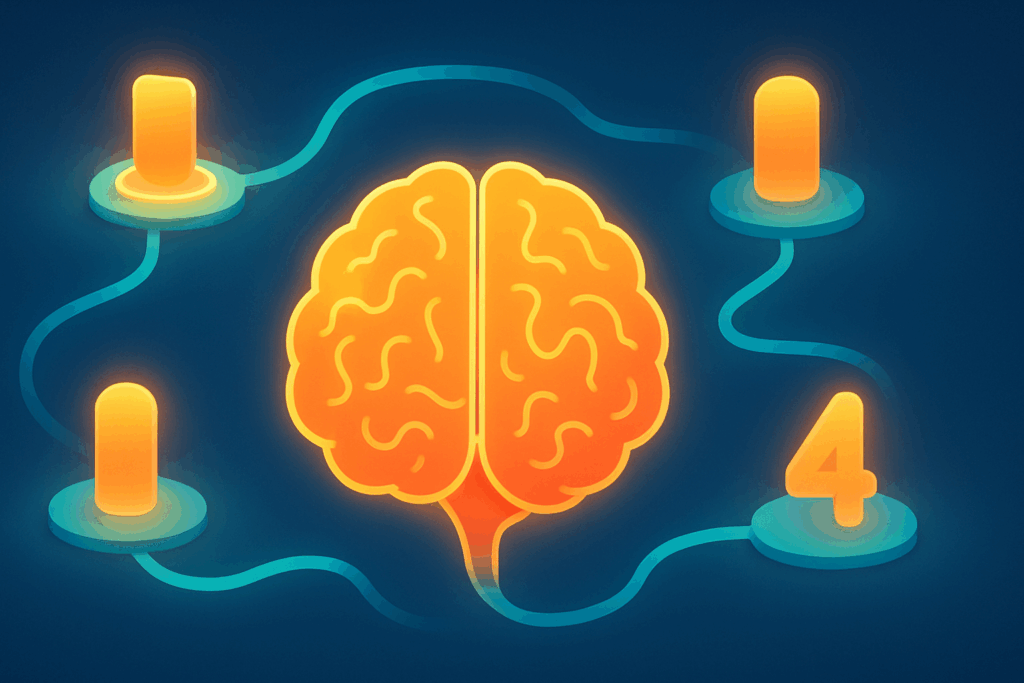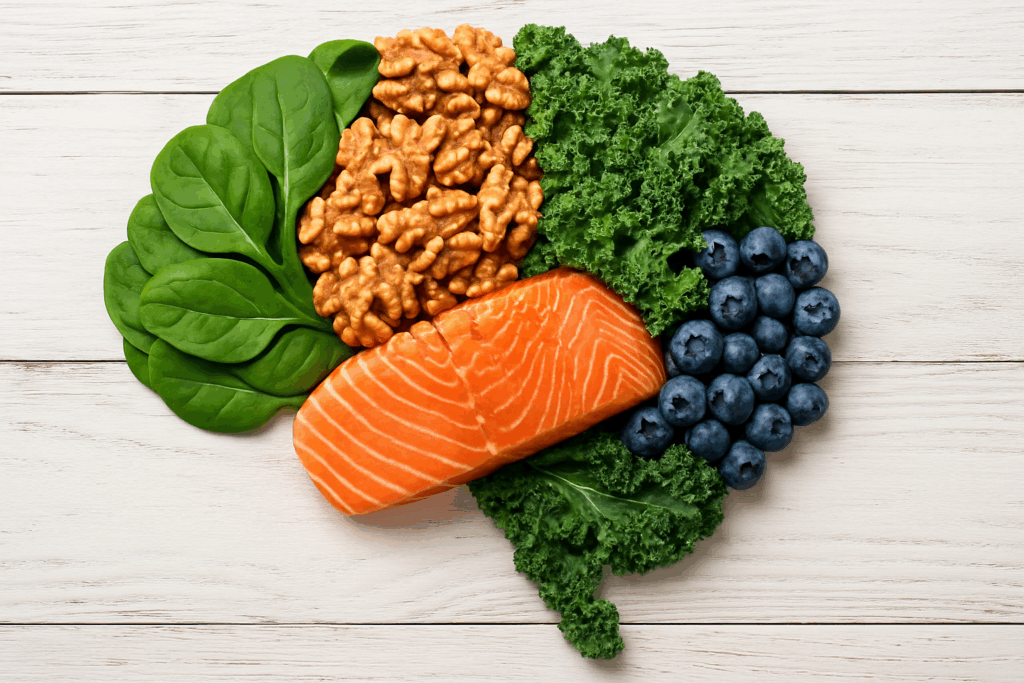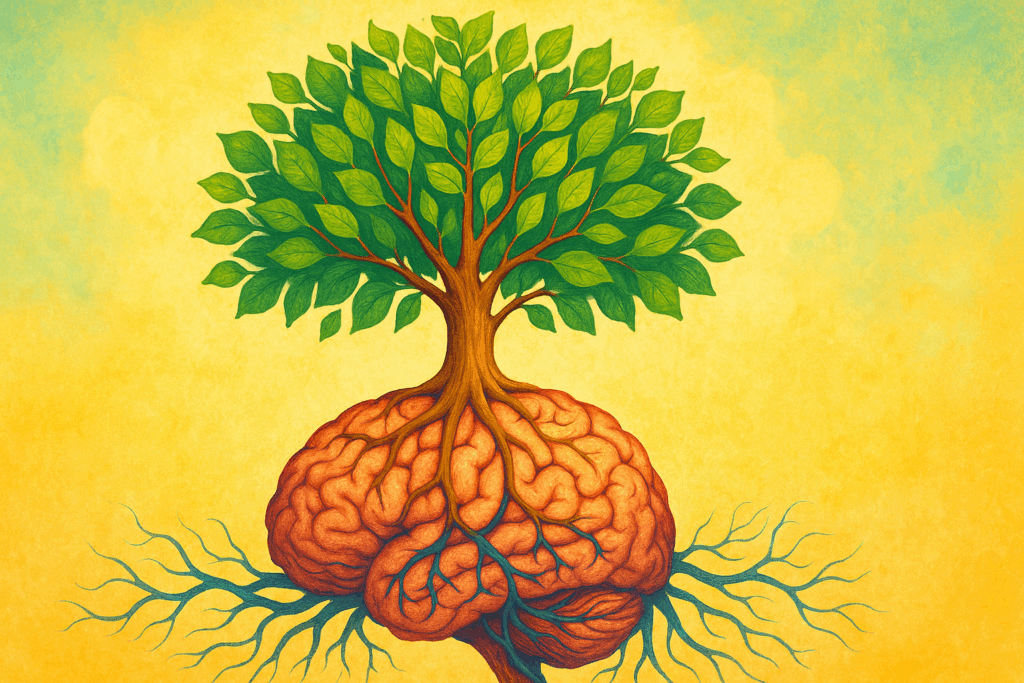Understanding the Core: Define Decision Making
When we define decision making, we speak about a fundamental cognitive process that enables individuals to select a course of action from multiple alternatives. Decision making meaning varies slightly depending on the context, but it universally revolves around choosing the best possible option to achieve a desired outcome. Good decision making is related to being able to assess available information critically, foresee consequences, and align choices with long-term goals. A firm grasp of the definition for decision making is crucial, as it shapes personal, academic, and professional trajectories alike. Whether one uses “decision making” as one word or two, understanding the essence of this ability remains pivotal.
You may also like: Navigating Life: Anxiety’s Impact on Decision-Making
While many attempt to list the steps of decision making process, it is the underlying cognitive health that dictates how effectively one navigates these stages. Cognitive resilience, mental clarity, and neurological efficiency all intertwine to create the framework that supports good decision making. Thus, exploring how natural foods and herbs might enhance these brain functions is not merely an exercise in health optimization; it is an investment in more empowered, confident life choices.

The Science of Decision Making: Defining and Understanding Its Steps
When discussing decision making meaning, it is necessary to outline its structure. How many steps are in the decision making process? While interpretations vary, the classic model emphasizes five to eight steps, each pivotal for thoughtful conclusions. The 5 steps of decision making typically include identifying the decision, gathering information, evaluating alternatives, choosing among them, and taking action. In more detailed approaches, such as the 7 step decision making process, additional phases like reviewing and learning from the decision are included. Similarly, the eight steps in the decision making process stretch these stages to encompass continuous improvement cycles.
Understanding which step comes first in the decision making process is crucial: recognizing the need for a decision. Without this awareness, one cannot proceed logically or efficiently. In parallel, comprehending what is the second step in the decision making process, namely gathering information, lays the foundation for a rational, evidence-based outcome. Whether adhering to five decision making steps, the 7 steps of decision making, or even the 8 steps in the decision making process, a well-nourished brain enhances one’s ability to process each stage adeptly. Thus, cognitive nutrition becomes indispensable to mastering decision making def.

Decision Making vs Decision Making: Exploring Cognitive Layers
Though the phrase “decision making vs decision making” may seem redundant, it offers a platform to explore the nuances of internal versus external decision dynamics. Internal decision making involves self-regulation, emotional intelligence, and intrinsic motivation. External decision making, by contrast, encompasses social, environmental, and collaborative factors influencing choices. Understanding the definition for decision making in both internal and external contexts helps individuals cultivate strategies suited to different environments.
In professional settings, development decision making highlights how critical choices are not spontaneous acts but results of structured thinking. Decision making at work examples include selecting the best project proposals, allocating budgets, or managing teams, each requiring sharp cognitive flexibility. Natural foods and herbs that optimize brain neurotransmitter activity can thus support individuals not only in personal arenas but in navigating complex professional landscapes as well.
Cognitive Nutrition: How Natural Foods Influence Decision Making Ability
Brain function is intimately tied to nutrition. To truly define decision making excellence, one must consider the foods that sharpen cognitive faculties. Omega-3 fatty acids, found in fatty fish like salmon, are known to enhance memory and focus, both critical for good decision making. Leafy greens such as spinach and kale, rich in folate and antioxidants, protect neural pathways and facilitate quick, accurate information processing, enhancing decision making ability.
Furthermore, blueberries, often celebrated for their high anthocyanin content, support improved communication between brain cells. Such enhanced connectivity is vital when one must move fluidly through the seven steps in the decision making process. Walnuts, another potent brain food, have been shown to improve inferential reasoning, a skill deeply intertwined with higher-order decision making. Incorporating these foods into daily life strengthens the mental muscles needed for excellent decision making.

Herbal Allies: Best Natural Remedies to Support Decision Making
Just as foods contribute to cognitive resilience, so do particular herbs. When one seeks to enhance decision making meaning in practical terms, herbal allies offer powerful support. Ginkgo biloba, a time-honored nootropic, improves blood flow to the brain and can boost short-term memory and focus—essential traits for completing the seven steps of decision making efficiently.
Bacopa monnieri, revered in Ayurvedic traditions, has shown potential in improving memory consolidation and reducing anxiety, two factors that heavily influence how decisions are made. Rhodiola rosea, another cognitive-enhancing herb, enhances stress resilience, supporting better executive functioning under pressure. Adaptogens like ashwagandha help modulate cortisol levels, aiding in emotional regulation, a crucial element often overlooked when considering decision making def. Integrating these natural remedies offers a holistic path to strengthening decision making ability without reliance on synthetic interventions.
Decision Making and the Role of Memory: How to Remember Stuff When Studying
The connection between memory and decision making is profound. To make decisions effectively, one must accurately recall relevant information. This raises an important question for students and professionals alike: how to remember stuff when studying? Natural strategies include using mnemonic devices, practicing active recall, and engaging in spaced repetition—methods rooted in cognitive science.
Yet, nutrition also plays an undeniable role. Foods rich in antioxidants, such as dark chocolate and green tea, enhance neuroplasticity, making it easier to form and retain new memories. Herbs like sage have been shown to directly impact acetylcholine activity, enhancing memory retention. Knowing how to memorize something for a test is not merely academic; it directly correlates with decision making at work examples and in personal life choices. Effective memory lays the groundwork for a robust decision making framework, where information is readily accessible and accurately applied.

Decision Making One Word or Two: Does It Affect How We Think?
Curiously, debates such as whether “decision making” is one word or two touch upon deeper cognitive processing themes. Decision making one word or two may seem trivial, but linguistic fluidity can impact cognitive processing fluency. The brain categorizes information based on patterns, and variations—even small ones—can introduce microsecond delays in cognitive interpretation.
When clarity and speed are paramount, such as during the third step in the decision making process—evaluating alternatives—even minor confusions can disrupt the flow. Thus, standardizing language and ensuring cognitive ease become important not just in communication but in actual neurological efficiency. In this light, even linguistic preferences tie back into the broader definition for decision making and how we optimize brain functions for sharper outcomes.
What You Read for Exams and How It Shapes Decision Making
Many students wonder what you read for exams to perform best. Surprisingly, what you read impacts decision making far beyond exam halls. When reading material is well-structured, engaging, and evidence-based, it primes the brain to organize information more efficiently. This, in turn, strengthens cognitive networks responsible for effective decision making.
Subjects requiring critical analysis, such as philosophy or systems theory, train the brain to anticipate consequences and model scenarios—skills essential during the eight steps in the decision making process. Thus, the cognitive habits developed through reading academically rigorous material directly translate into real-world decision making ability. The act of studying becomes, therefore, not just a means to pass exams but a foundational pillar in developing lifelong cognitive agility.
Development Decision Making: Building Long-Term Cognitive Strength
Development decision making underscores the necessity of nurturing decision making skills from an early age. Critical thinking curricula, mindfulness practices, and dietary awareness all contribute to building a resilient cognitive infrastructure. Good decision making is related to being able to sustain attention, assess probabilities, and manage emotional responses over time.
Lifelong habits such as consuming foods rich in magnesium, like avocados and almonds, or herbs like gotu kola, which supports cerebral blood flow, enhance these capacities. Brain exercises, such as chess or strategic video games, also cultivate sharper cognitive pathways. Ultimately, development decision making is not a static achievement but a dynamic, lifelong commitment to enhancing one’s decision making ability through integrated mind-body strategies.
What Is the Purpose of a Decision: A Philosophical Perspective
At its heart, asking “what is the purpose of a decision” reveals profound philosophical inquiries. Decisions are not merely functional acts but expressions of values, aspirations, and self-identity. Every choice, from what you read for exams to career moves, reflects an internal calibration of personal meaning.
Understanding the purpose behind decisions strengthens cognitive consistency and emotional resilience. It ensures that choices are not made reactively but proactively, aligned with one’s authentic self. The ability to articulate the purpose behind each decision contributes to a more coherent identity, enhancing both personal satisfaction and professional effectiveness. Thus, a thorough engagement with decision making meaning transcends mechanics, touching the very core of human fulfillment.
How to Memorize Something for a Test: Practical Techniques for Cognitive Mastery
Mastering how to memorize something for a test demands a multipronged approach. First, activating multiple senses during study sessions—such as reading aloud, writing notes by hand, and visualizing concepts—strengthens memory encoding. Second, managing study environments to minimize distractions preserves attentional bandwidth for deeper cognitive absorption.
Moreover, embracing natural cognitive enhancers such as rosemary aromatherapy or supplementing with lion’s mane mushroom extracts may offer measurable advantages. Finally, aligning study schedules with circadian rhythms maximizes cognitive efficiency. Understanding how to remember things while studying thus supports broader goals, enhancing memory reliability and thereby fortifying one’s decision making process.
What Is the Third Step in the Decision Making Process: Critical Analysis and Evaluation
When dissecting the seven steps of decision making, what is the third step in the decision making process often emerges as the pivotal juncture. This stage—evaluating alternatives—demands the greatest cognitive flexibility. It requires the brain to compare options, forecast outcomes, and anticipate potential pitfalls.
Nutritional support plays a critical role here as well. Consuming foods rich in flavonoids, such as citrus fruits and berries, supports executive functions involved in weighing alternatives. Herbal allies like holy basil may enhance stress tolerance, allowing for clearer comparative thinking under pressure. Mastering this critical phase ensures that subsequent decisions are not only rational but deeply informed by holistic cognitive assessment.

Frequently Asked Questions: Define Decision Making and Natural Cognitive Support
What are some lesser-known factors that impact decision making ability beyond nutrition and memory?
While nutrition and memory play major roles in sharpening decision making, lesser-known factors like sleep hygiene, emotional regulation, and environmental cues also profoundly impact the process. Sleep deprivation, even for one night, can impair the prefrontal cortex, which governs critical thinking and decision making ability. Emotional resilience also affects the definition for decision making, as unchecked emotions often lead to impulsive rather than strategic decisions. Moreover, ambient factors like lighting, noise levels, and workspace organization can subconsciously prime the brain for sharper or sloppier cognitive choices. By cultivating these areas alongside good nutrition, one can more fully define decision making excellence in daily life.
How does the “decision making meaning” shift when considering decisions under stress?
Decision making meaning evolves significantly when stress enters the picture. Under pressure, the brain tends to revert to habitual, less rational choices, undermining the ideal definition for decision making as a rational selection between options. Chronic stress floods the body with cortisol, impairing the hippocampus and reducing memory reliability—a crucial asset when one needs to make informed decisions. Techniques like mindfulness meditation or adaptogenic herbs can buffer stress responses, helping maintain better cognitive function during high-stakes moments. Thus, understanding how stress alters decision making def encourages proactive stress management to protect cognitive performance.
In practical terms, how should people apply the 7 steps of decision making to everyday choices?
In real-world contexts, applying the 7 step decision making process doesn’t need to be tedious or mechanical. Quick choices—like selecting a meal—may require only an intuitive glance through the steps, while major decisions—such as choosing a career path—benefit from deliberate application. To define decision making pragmatically, one should begin by clearly identifying the need for a choice, gathering relevant data, evaluating options critically, making a selection, acting, and then reviewing outcomes for future growth. The decision making meaning gains depth when people realize that even everyday habits, when optimized, can reflect strong executive function. Embedding these habits into daily life ensures that even minor decisions align with larger personal and professional goals.
How do different cultures interpret the concept of “decision making”?
Cultural perspectives can deeply influence how people define decision making and perceive its ideal form. In collectivist cultures, decision making meaning often emphasizes group consensus and harmony over individual preference. In contrast, individualistic cultures prioritize personal autonomy, framing the definition for decision making around self-directed goals. Interestingly, studies show that brain activation patterns during decision making vs decision making across cultures highlight variations in emotional processing and social valuation. Recognizing these differences allows for a richer, more nuanced understanding of cognitive diversity and decision making ability on a global scale.
Can the debate over “decision making one word or two” impact professional communication?
Although “decision making one word or two” may seem trivial, consistency in professional communication matters significantly. In fields like law, education, and healthcare, precision strengthens credibility and fosters trust. While both “decision-making” and “decision making” are accepted, clarity and house style preferences often determine usage. Understanding this distinction is part of decision making def, emphasizing the value of attention to detail. Professionals who respect these linguistic nuances often convey greater authority, enhancing their overall decision making ability through effective communication.
What are emerging trends in cognitive enhancement for better decision making?
New frontiers in cognitive enhancement are reshaping how people define decision making excellence. Nootropic stacks combining traditional herbs with cutting-edge compounds like noopept or citicoline are gaining traction. Neurofeedback training, which allows individuals to observe and adjust their brainwave patterns in real-time, shows promise for optimizing decision making ability. Functional nutrition, emphasizing microbiome health to boost neurotransmitter balance, offers another intriguing avenue. The evolving definition for decision making thus extends beyond static models, embracing dynamic interventions rooted in personalized medicine. Keeping pace with these trends empowers individuals to take a proactive role in cultivating sharper cognitive choices.
How does emotional intelligence intersect with the 7 step decision making process?
Emotional intelligence, encompassing skills like empathy, self-awareness, and emotional regulation, profoundly enriches the 7 step decision making process. While traditional models focus heavily on logic and data evaluation, emotionally intelligent decision makers excel at anticipating social consequences and managing internal biases. In fact, high emotional intelligence often strengthens one’s ability to correctly define decision making moments and apply the steps adaptively. Recognizing when emotions cloud judgment allows for intentional pauses and recalibrations, protecting the integrity of the final decision. Thus, merging emotional acuity with cognitive rigor represents a more holistic approach to the modern decision making def.
What role does neuroplasticity play in enhancing decision making ability?
Neuroplasticity—the brain’s ability to rewire itself—forms the biological foundation for developing stronger decision making ability over time. Through consistent cognitive challenges, such as learning new skills, individuals enhance neural connectivity, improving executive function. This biological basis underlines a deeper decision making meaning: it is not just a static skill but a dynamic, trainable capacity. Interventions like brain-training apps, regular physical exercise, and consumption of neuro-supportive foods like omega-3s can amplify neuroplastic gains. Embracing neuroplasticity encourages a growth mindset, aligning with a forward-thinking definition for decision making.
How can decision making ability impact long-term career success?
Career trajectories are often shaped less by technical skills and more by the quality of one’s decisions over time. Professionals who master decision making meaning can navigate ambiguity, seize opportunities, and avoid common cognitive traps like confirmation bias. Development decision making within organizations further highlights the need for structured frameworks that guide key choices around promotions, team-building, and strategic initiatives. Investing early in habits that enhance decision making ability—such as journaling decisions and outcomes—can create a cumulative advantage. In a rapidly evolving economy, those who truly define decision making excellence gain an indispensable edge.
Could the future redefine what we understand by “decision making”?
As artificial intelligence, neuroscience, and psychology advance, our collective definition for decision making is likely to evolve. Concepts like decision making vs decision making may gain new layers, distinguishing between human-driven and AI-assisted choices. Emerging research into subconscious influences suggests that many decisions occur before conscious awareness, challenging traditional decision making def models. Ethical considerations surrounding AI in decision-making systems further expand the conversation, emphasizing responsibility and transparency. In the coming decades, redefining decision making meaning will be essential for balancing technological innovation with human agency, ensuring that cognitive empowerment remains at the core of progress.

Conclusion: Defining Decision Making Through Natural Support for Cognitive Excellence
Defining decision making is not simply an intellectual exercise; it is an essential life skill enhanced by deliberate cognitive care. By understanding decision making meaning and engaging with both the science of the seven steps of decision making and the art of optimizing brain health, individuals can transform their ability to navigate complex choices with grace and precision. Natural foods like leafy greens, walnuts, and salmon, alongside potent herbs such as ginkgo biloba and bacopa monnieri, offer tangible pathways to boost decision making ability.
Recognizing what is the purpose of a decision infuses this process with deeper intentionality, while mastering how to remember things while studying ensures that information retrieval remains robust and reliable. Whether pondering the decision making one word or two debate or strategizing through development decision making initiatives, the journey to sharper cognitive choices is richly supported by nature’s bounty. Embracing these strategies offers not only better academic and professional outcomes but a more empowered, intentional life trajectory grounded in clarity, resilience, and wisdom.


